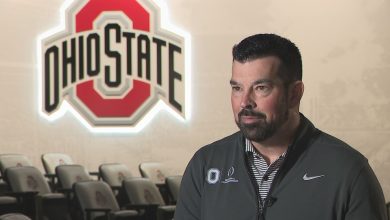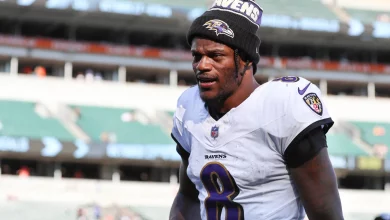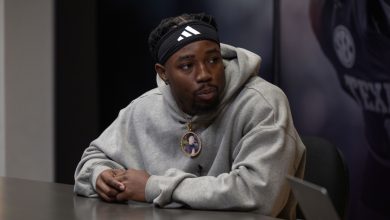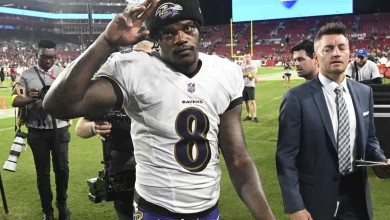The Most Important Fact Georgia Football Must Modify by 2025
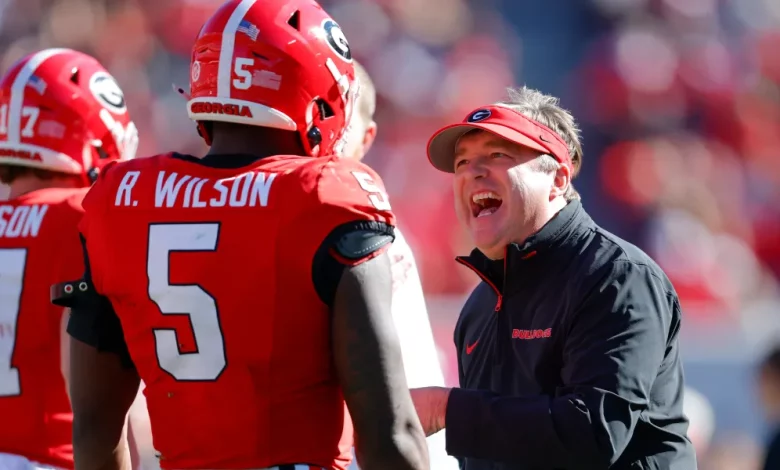
As the University of Georgia’s football program has risen to elite status in recent years, much of its success has been attributed to its formidable defense, its recruiting prowess, and its strong leadership under head coach Kirby Smart. Georgia has positioned itself as one of the premier programs in college football, capturing a national championship in 2021 and maintaining competitiveness at the highest level throughout the past few seasons. However, while the Bulldogs have made tremendous strides in many areas, one crucial aspect of their program remains in need of modification: offensive consistency and adaptability.
By 2025, Georgia football must address its offensive structure to ensure continued dominance on the national stage. The team’s offensive identity, while solid, has shown signs of stagnation at times, particularly when facing elite defenses. The Bulldogs’ offense needs to evolve beyond its reliance on a power run game and develop a more dynamic, versatile attack that can succeed in high-pressure situations. While Georgia’s defense remains one of the strongest in the country, and their recruiting continues to draw top-tier talent, the offense must be more consistent and flexible to maintain the program’s status as a championship contender.
This article will explore why improving offensive consistency and adaptability is the most important modification Georgia football must make by 2025, how it can be achieved, and the potential impact it will have on the program’s future.
The Success of Georgia Football Under Kirby Smart
Since Kirby Smart took over as head coach in 2016, Georgia has made substantial progress. The Bulldogs have consistently ranked among the top teams in the country, securing multiple SEC championships, making multiple College Football Playoff appearances, and, of course, winning the 2021 national championship. Smart has built a dominant program known for its high-caliber defense, exceptional recruiting, and ability to develop talent at virtually every position.
Defensively, Georgia has been among the most formidable programs in the country. Smart, a former defensive coordinator at Alabama, has instilled a relentless, physical defensive culture that has resulted in one of the nation’s best defenses year after year. In fact, Georgia’s defense was a critical factor in its 2021 national championship run, helping to propel the Bulldogs past elite programs like Alabama and Michigan.
However, despite Georgia’s defensive dominance, one area where the program has faced challenges is on the offensive side of the ball. While the offense is certainly talented and effective, particularly in the run game, there have been moments in high-stakes games—particularly against elite defenses—where the Bulldogs have struggled to execute consistently. This issue has been exacerbated by the program’s reliance on a more traditional, pro-style offense, which, while effective, can sometimes struggle to keep pace with the evolving offensive philosophies in college football.
Offensive Inconsistency: A Key Challenge for Georgia Football
Georgia’s offense, while often dominant, has shown periods of inconsistency, especially in crucial games. The Bulldogs have traditionally relied on a power run game, which has served them well in many matchups. Running backs like Nick Chubb, Sony Michel, D’Andre Swift, and Zamir White have had outstanding careers at Georgia, and the offensive line has been a reliable force in creating lanes for these backs. Georgia’s running game has been an essential part of their success, particularly in controlling the clock and dictating tempo.
However, the passing game has often been a more uncertain element. While Georgia has produced talented quarterbacks, including Jake Fromm, Stetson Bennett, and others, the Bulldogs’ offense has sometimes lacked the explosiveness needed to consistently challenge elite defenses. The reliance on a strong running game, coupled with a passing attack that can occasionally be inconsistent, has left the Bulldogs vulnerable in high-pressure situations, especially when facing teams with elite defenses that can stifle the running game.
Georgia has made strides to address this, particularly with the development of quarterbacks like Stetson Bennett, who helped lead the team to the national championship in 2021. Bennett’s ability to make plays in critical moments and his leadership were integral to the team’s success. However, the passing game still lacks the explosive firepower of some of the top offenses in college football, and Georgia’s offense can sometimes feel too one-dimensional. This is especially concerning given the evolving nature of college football offenses, which increasingly rely on spread systems, dynamic quarterbacks, and creative playcalling.
In big games—such as those against Alabama, LSU, and other top-tier teams—Georgia has struggled to maintain offensive consistency, particularly when the opposing defense is able to stifle their rushing attack. Against Alabama in the 2021 SEC Championship, Georgia’s offense faltered after an early lead, unable to generate the necessary explosive plays in the passing game to keep pace with Alabama’s dynamic offense. While Georgia’s defense had an off-day in that game, the inability of the offense to sustain drives and create big plays ultimately cost them the win. This has highlighted the need for more offensive balance, adaptability, and versatility moving forward.
Adapting to the Modern Offensive Landscape
By 2025, Georgia football must make a concerted effort to adapt its offensive approach to keep up with the rapidly changing landscape of college football offenses. In recent years, many of the nation’s top programs, including Alabama, Ohio State, Clemson, and LSU, have embraced more dynamic, high-powered offenses that prioritize spreading the field, utilizing fast-paced tempos, and creating explosive plays. This shift has been driven by a combination of factors, including the evolution of quarterback play, the rise of the spread offense, and an emphasis on quick, explosive drives that keep opposing defenses on their heels.
Georgia’s offense must evolve to incorporate elements of these more dynamic systems while maintaining the strength of their traditional run game. The Bulldogs have the potential to excel in the modern offensive landscape, given their recruiting ability and the talent already on the roster. However, in order to continue competing for national championships, Georgia must find a way to adapt its offensive playbook to create a more balanced attack—one that can excel both in the running game and in the passing game.
Several key changes need to be made to ensure that Georgia’s offense remains a force to be reckoned with:
1. Developing an Elite Quarterback
One of the most important steps in improving Georgia’s offensive consistency is the continued development of an elite quarterback. While Stetson Bennett had a successful career at Georgia, and players like Jake Fromm and Justin Fields have also made significant contributions, the Bulldogs need a quarterback who can consistently make big plays in critical moments, especially in high-stakes games against top-tier defenses.
Georgia’s recruiting efforts have already brought in promising young quarterbacks, including Brock Vandagriff and Gunner Stockton, who have the potential to lead the offense for years to come. By 2025, the Bulldogs will need to develop one of these quarterbacks into a true difference-maker—a player who can orchestrate an offense that is versatile, creative, and capable of making explosive plays in both the running and passing game.
2. Embracing a More Dynamic Passing Attack
While Georgia has been known for its power running game, its passing attack must become more dynamic. Incorporating more spread principles, tempo-based offense, and creative playcalling can help Georgia become more unpredictable and difficult to defend against. This means utilizing the full complement of receivers, including both traditional wideouts and tight ends, to create mismatches across the field.
The Bulldogs have a talented receiving corps that includes players like Kearis Jackson, Ladd McConkey, and others. However, the passing game has often lacked the consistency needed to break through in critical moments. By 2025, Georgia should aim to refine its passing game to create more explosive plays down the field, using play-action passes, quick throws to the perimeter, and aggressive deep shots.
3. Incorporating More Tempo and Versatility
In addition to enhancing the passing attack, Georgia should consider incorporating more tempo into its offense. Running a no-huddle offense or varying tempo can catch opposing defenses off guard and create more opportunities for big plays. Georgia has the talent to operate at a faster pace, and by doing so, they can tire out opposing defenses and force them to make mistakes. This, in turn, can open up opportunities for explosive plays and allow Georgia’s playmakers to shine.
Furthermore, Georgia’s offense must be more versatile in its approach. By 2025, the Bulldogs should have the ability to switch between power football, spread concepts, and tempo-based offenses depending on the situation and opponent. This adaptability will make Georgia a more dangerous and unpredictable team, ensuring that they can compete with any program, no matter the style of defense they face.
The Path Forward for Georgia Football
Georgia football has made tremendous strides under Kirby Smart, and the Bulldogs are undoubtedly one of the premier programs in college football. However, in order to remain at the top and consistently compete for national championships, the program must address its offensive consistency and adaptability. By 2025, Georgia must find a way to evolve its offense, ensuring that it is balanced, versatile, and capable of keeping up with the changing dynamics of college football.
This will require continued development at the quarterback position, a more dynamic passing game, and the willingness to embrace modern offensive principles that can give the Bulldogs an edge over their competitors. As long as Georgia can adapt and evolve, the future of the program will remain bright, and the Bulldogs will be in contention for championships for years to come.



